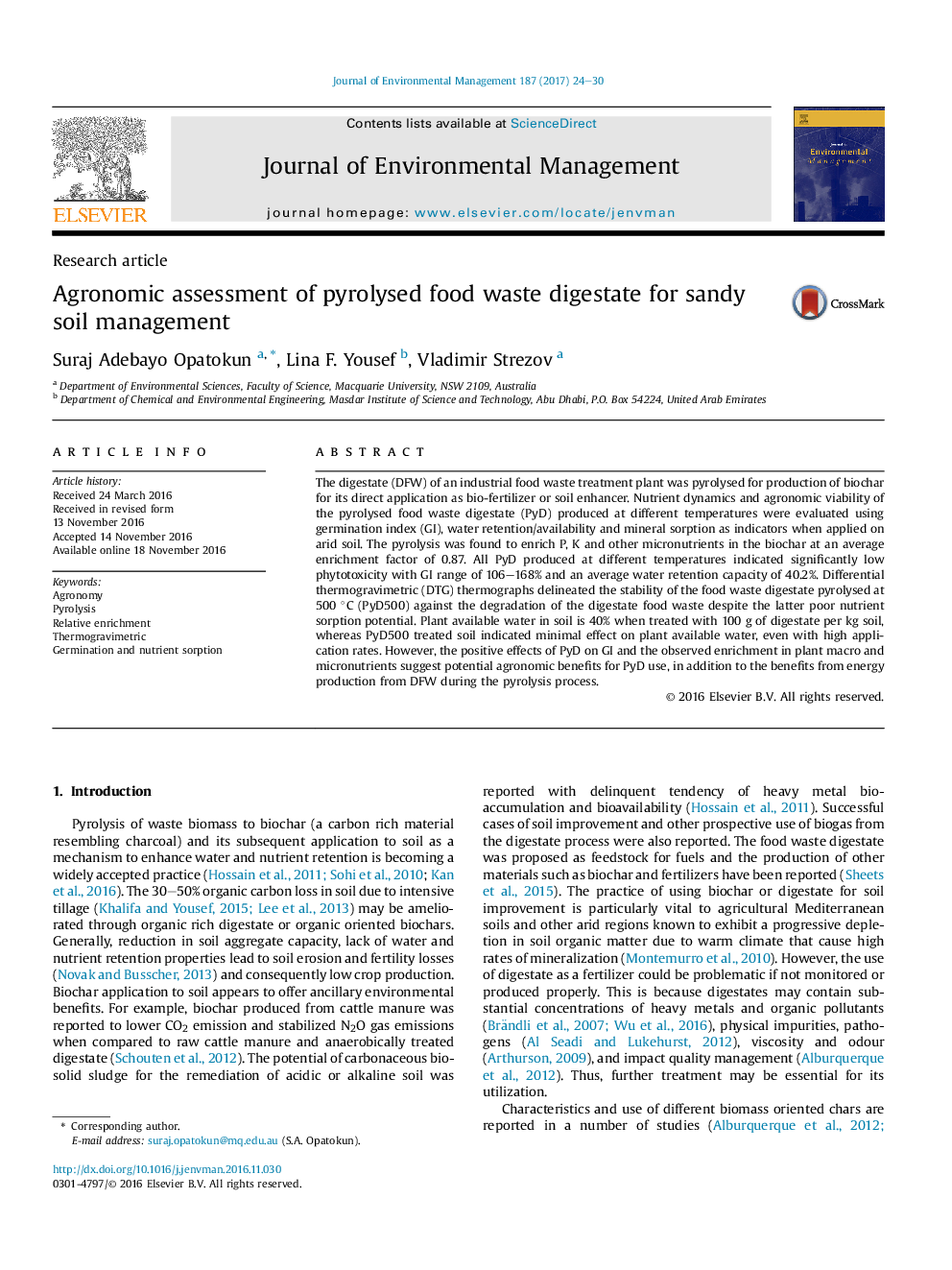| Article ID | Journal | Published Year | Pages | File Type |
|---|---|---|---|---|
| 5117351 | Journal of Environmental Management | 2017 | 7 Pages |
â¢Biochar produced from pyrolysis of food waste digestate were analysed.â¢Pyrolysis of food waste digestate at different temperature influence nutrient configuration of the biochar.â¢Thermographs of substrates were used as indicator to determine short and long time effects.â¢Biochars produced indicated low phytotoxicity with germination index range of 106-168% and least water holding capacity of 38%.â¢Digestate provided the best plant available water of 40% at 100 g/kg application rate.
The digestate (DFW) of an industrial food waste treatment plant was pyrolysed for production of biochar for its direct application as bio-fertilizer or soil enhancer. Nutrient dynamics and agronomic viability of the pyrolysed food waste digestate (PyD) produced at different temperatures were evaluated using germination index (GI), water retention/availability and mineral sorption as indicators when applied on arid soil. The pyrolysis was found to enrich P, K and other micronutrients in the biochar at an average enrichment factor of 0.87. All PyD produced at different temperatures indicated significantly low phytotoxicity with GI range of 106-168% and an average water retention capacity of 40.2%. Differential thermogravimetric (DTG) thermographs delineated the stability of the food waste digestate pyrolysed at 500 °C (PyD500) against the degradation of the digestate food waste despite the latter poor nutrient sorption potential. Plant available water in soil is 40% when treated with 100 g of digestate per kg soil, whereas PyD500 treated soil indicated minimal effect on plant available water, even with high application rates. However, the positive effects of PyD on GI and the observed enrichment in plant macro and micronutrients suggest potential agronomic benefits for PyD use, in addition to the benefits from energy production from DFW during the pyrolysis process.
